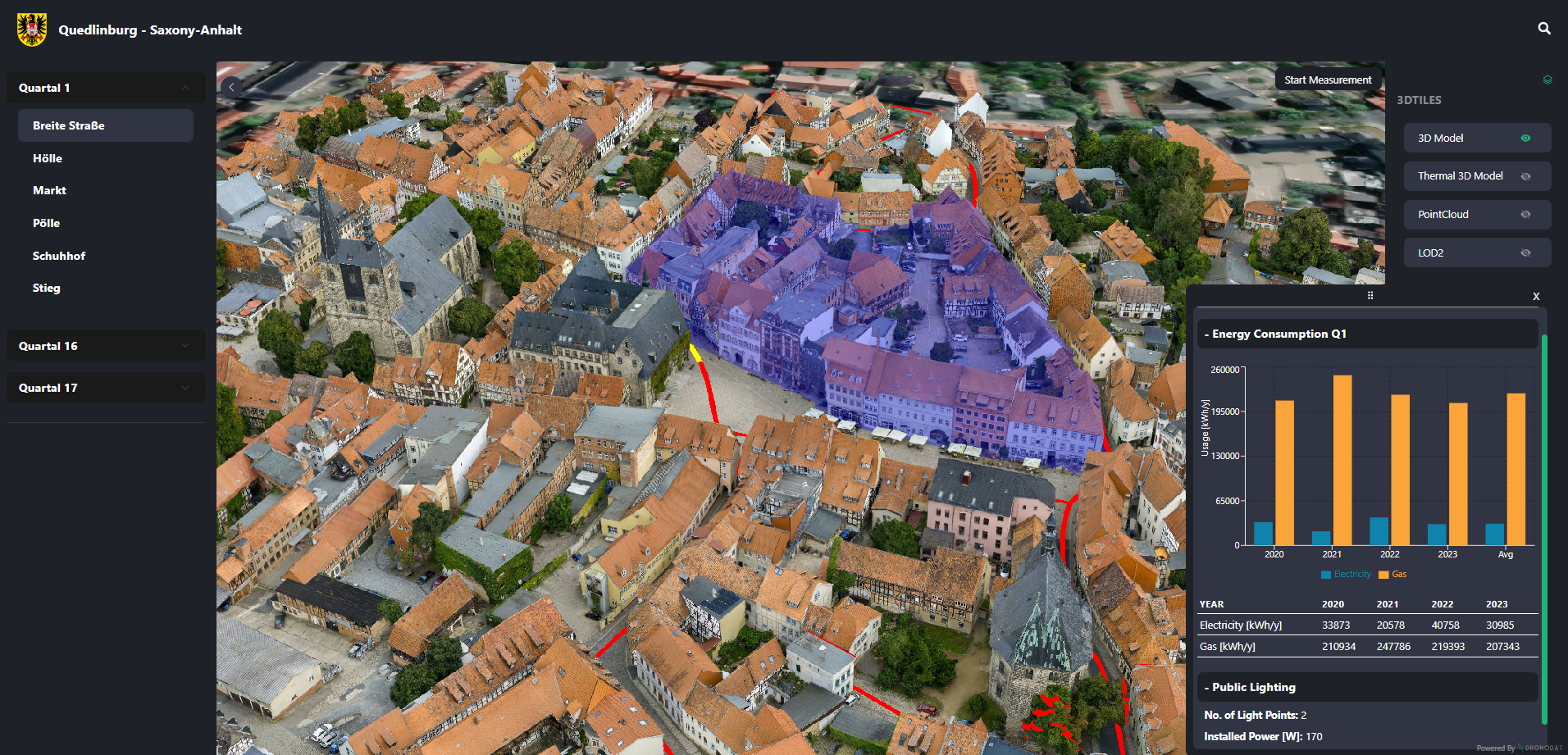The ZEB4ZEN project is advancing the transition towards zero-emission neighbourhoods by integrating innovative energy solutions while preserving the cultural heritage of historic urban areas. As part of this effort, the project is utilizing Virtual Reality (VR) technology to support energy planning and decision-making processes.
To showcase green and digital transformation measures, a VR platform based on DronoViewer is being developed and applied in three pilot locations:
- Three building blocks in the UNESCO city of Quedlinburg, Germany
- An urban block in the UNESCO city of Palmanova, Italy
- The overall star-shaped city center neighbourhood of Karlovac, Croatia
Supporting Energy Planning with VR
The VR tool provides highly detailed 3D models enriched with real data on electricity and heat consumption at various scales, from district level down to individual streets or blocks. This interactive platform allows users to visualize and assess the impact of energy transition measures in a way that traditional planning tools cannot.
The tool will support planning and decision-making by enabling users to explore the integration of key energy transition technologies, including:
- Rooftop photovoltaic systems
- Heat pumps in inner courtyards
- Charging stations for micro-mobility
By incorporating a Multi-Criteria Decision-Making tool, the platform will allow stakeholders to compare different decarbonization strategies based on real data. This approach ensures that energy action plans respect both sustainability goals and heritage conservation regulations, such as those set by UNESCO.
Engaging Stakeholders for a Sustainable Future
The ZEB4ZEN project is actively involving public authorities, energy experts, and local communities in shaping sustainable solutions for historic cities. The VR tool serves as a valuable communication and planning resource, enabling stakeholders to explore and interact with potential energy transition scenarios before implementation.
Stay tuned for more updates on the development of the VR platform and its application in pilot neighbourhoods.
